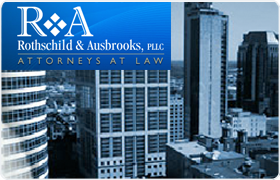Gladeville Reorganization Lawyer, Tennessee
Sponsored Law Firm
-
 x
x

Click For More Info:
-
Rothschild & Ausbrooks, PLLC
1222 16th Ave. South, Suite 12 Nashville, TN 37212» view mapBankruptcy Filing, Chapter 7, Chapter 13 You Are Not Alone. We Can Help.
Our law firm encourages communication. We respond to calls and e-mails promptly. This is your case, and you will be involved every step of the way.
800-966-8531
Mary Catherine Gasser
Family Law, Elder Law, Administrative Law, Reorganization
Status: In Good Standing Licensed: 13 Years
Timothy Davis
Trusts, Family Law, Insurance, Reorganization
Status: In Good Standing Licensed: 26 Years
Timothy Art Davis
Trusts, Family Law, Insurance, Reorganization
Status: In Good Standing Licensed: 26 Years
Georgina Hughes
Litigation, Reorganization, Family Law, Trusts, Federal Appellate Practice
Status: In Good Standing Licensed: 16 Years
Susan Carol Parkes
Family Law, Reorganization, Bankruptcy, Bankruptcy & Debt
Status: In Good Standing Licensed: 45 Years
Jeffrey Lynn Peach
Reorganization, Labor Law, Family Law, Trusts
Status: In Good Standing Licensed: 16 Years
David Earl Phillips
Divorce & Family Law, Reorganization, Bankruptcy, Bankruptcy & Debt
Status: In Good Standing Licensed: 39 Years
Kyle Anderson Russell
Labor Law, Elder Law, Administrative Law, Reorganization
Status: In Good Standing Licensed: 10 Years
Brandon R. Elliott
Tax, Estate Planning, Corporate, Reorganization
Status: In Good Standing Licensed: 10 Years

 Mary Ausbrooks Nashville, TN
Mary Ausbrooks Nashville, TN Contact UsCall or Email
Contact UsCall or Email LinkedIn
LinkedIn
